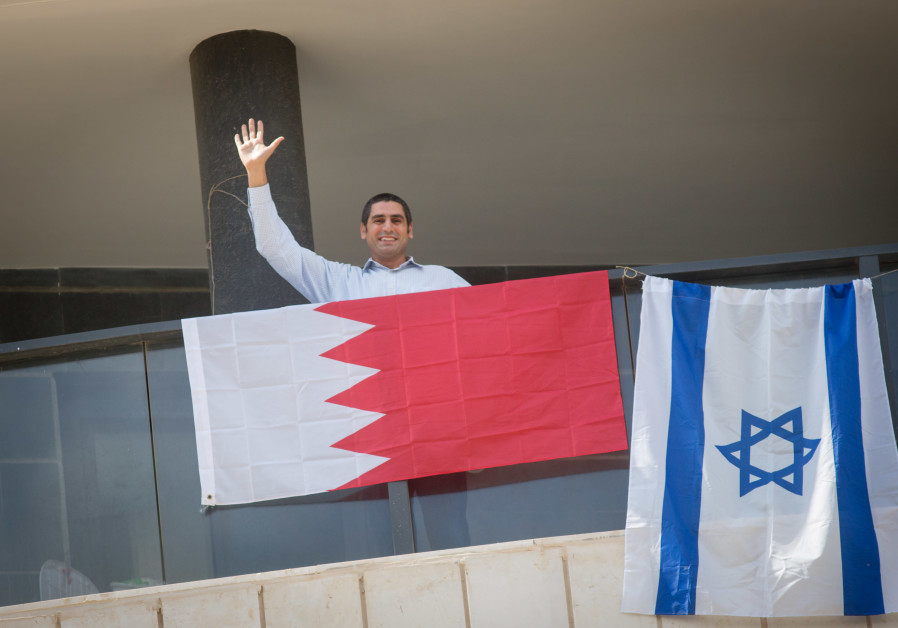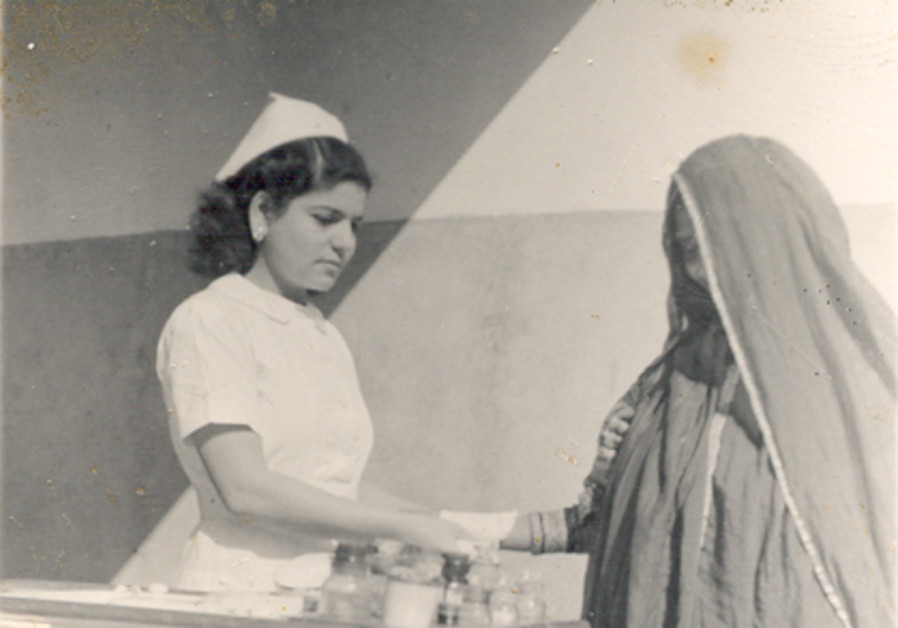
Bahrain’s lost Jews look forward to returning after peace with Israel
Bahrain’s dwindling community of less than 50 Jews has been offered a new lease on life in the wake of the signing of this month’s historic Abraham Accords, with many in Israel anxious to reconnect to their homeland.
Most former Bahrainis forfeited their passports when making aliyah, so current numbers are unclear. The Jewish Agency has only two formal registrations but numbers are certainly far higher than that.
Munir Akirav, 35,born in Givatayim, is one of a small number of Jews of Bahraini origin living in Israel. His mother and her family left Bahrain in 1970.
“My personal connection to Bahrain is based on stories, pictures, videos, from my mother’s family,” he says. “The connection is one of nostalgia and longing for a time of which you were never apart.

So, for me it’s a very, very strong feeling,” explains the accountant and credit analyst. When he heard the news of the Abraham Accords, overcoming decades of political annexation of Israel, he said he “jumped for joy.”
That feeling of nostalgia has manifested in many ways over the years, including the sadness that his friends originally from Poland and Germany could return to the lands of their ancestors, reconnect and learn more about their origins, but he could not.
Before the accord, his return “home” was never an option, but now, that has all changed. He now has a Bahraini flag proudly waving outside his family’s home and longs for the day he will get to walk the streets of Manama.
The Bahraini Jews are welcome back very much. King Hamad bin Isa Al Khalifa went on missions to the UK and US Jewish communities in 2008, to invite them back, offering financial incentives to what he said was their home. He has always maintained open dialogue with religious leaders around the world, and openly supported the country’s Jewish community.
With a waning community in Bahrain, Akirav’s thoughts now turn to the possibilities of helping rebuild it. The Bahraini economy is strong and quality of life is high. He says, if the community is welcome back, and he can retain his Israeli citizenship, he would be delighted.
“The roots of my parents, Bahrain and Iraq, live here in my heart,” he says. “It’s very deep down. To have a concrete expression, and to feel and smell the atmosphere there, would be unreal.”
It will be a very different place than when his mother left; Manama now is a modern city dotted with skyscrapers, and the home of his grandparents is now a KFC.
JEWS HAVE long been a respected part of Bahraini society, with one seat of parliament reserved for a member of the Jewish community, with many in highly influential positions such as Houda Nonoo, formerly the Bahraini ambassador to the US. The community was built around the 1880s or 1890s, mostly from Iraqi and Iranian Jews coming for economic opportunities in trades likes textiles.
Jews are believed to have lived in Bahrain since the time of the Talmud. The vast majority of the roughly 1,500-strong Jewish population left Bahrain in the wake of the creation of the state of Israel when unrest befell Manama.
It is believed that foreign nationals had set ablaze the region’s only synagogue amid unrest which followed the 1947 UN partition vote. Violence saw Jewish homes and shops looted, with protesters even throwing rocks at members of the community, leaving many injured and one dead.
It is the young generation which many believe may be the hope to regenerate the dwindling numbers. Asaf Manassem’s mother was born in Bahrain so he has always been connected to the country through family stories and culture.
“The younger generation of Israelis is not so attached to being here, they are less Zionist,” the 36-year-old software engineer says, as the globalization of the workforce means job opportunities around the world are increasingly accessible – at least before the pandemic. “If Bahrain has opportunities for us, a better quality of living, I think people will go.”
His aunt, Mona, born in Bahrain and left for Israel aged 14, in 1969, agrees. With rising unemployment in Israel, high taxes and what she calls “not an easy life,” with low salaries and now, the challenges of a pandemic, she says that the small Gulf state may offer the chance of better prospects for the likes of her nephew.
“For those of us who are older, we are comfortable and settled, but the younger generation is very curious to go back, to understand where they’ve come from. Maybe it could be appealing for our children, but first, we must go and visit,” she says.
Ebrahim Nonoo, head of the Jewish community and a former member of the Shura Council, the country’s parliament, says: “That many made the move [to Israel] – and you’re talking about a kind of fear that was created amongst them – so they panicked and they just packed up and left.”
Roza Katzav, known as Joza while in Bahrain, but whose name was changed upon her arrival to Israel, is now 85. Born in Manama, she left very reluctantly with her family in 1953 at the age of 20.

A newly qualified nurse, she and 23 family members took a charter flight to Israel, where her father felt it was safest. Unlike those who fled in 1948, Roza had always felt safe in Bahrain and she has longed to go back ever since.
“I’ve missed it so much,” she says. “I wanted to stay, but I couldn’t. I have only good memories of growing up there. It always felt very safe. We were well taken care of by the Bahraini community.”
HER ELDEST daughter, Ariela Dery, hopes that she will be able to take her mother home to visit, to reconnect to the land she has so missed all these decades.
“We can’t wait to visit the homes our family lived in, the school our mum went to, and to pay our respects to our family’s graves,” says Dery. Her own children remain rooted to their ancestry too, through storytelling and culture that is at the heart of family gatherings.
Orna Darom, Roza’s youngest daughter, says her children, too, are equally anxious to return “home,” having spent over 20 years retracing their history, collected in an ancestry book at the family home in Rehovot.
She knows her family’s experience was very different to many others; they even lived in a non-Jewish neighborhood, a wealthy Muslim area of the city. “Some Jews from back then don’t want to go back as they remember a time when they feared for their lives, but this is not my mother’s experience. She felt very well protected and would have loved to return.”
On the small Gulf island, its Jewish community is now as small as 40 to 50 people, including those who come in and out from second homes in the likes of the UK and the US, where they reside in strong Jewish communities such as New York and North London.
Nonoo says the community may only have had another 10 years before it reached extinction without the accords. “It would have been that difficult for us, because our population is so aged,” he explains.
“My mother is 85. There’s another lady who is over 85, and there are ladies who are in their 70s. The numbers are too small to be able to continue as a viable community.”
Nonoo, now the voice of the small community, says that around the 1980s, authorities sought the Jews who had left to allow them to return as full citizens, but sadly, could not trace them.
“At that time, we didn’t have any connection with the Jewish Agency. Some Muslim Bahrainis were asking for certain members of the Jewish community because they wanted to clear any debts they had before their passing.
Of course, that’s an important tenet in Judaism as well, and here, they felt this was a debt that was left unpaid.” In the end, the proceeds were given to the Islamic endowment, a charity for needy Muslims, in lieu of finding the original owners.
Nonoo, whose own family is now spread out around the world, in Israel, the UK and Bahrain, says all those who had properties in Bahrain had either sold them before leaving or forfeited them due to the law which removed their citizenship once they left.
Now, the synagogue is undergoing renovation, ready to become the focal point of the community once more. He hopes it will be ready to reopen in February, under a rabbi believed to be of Bahraini descent, born and raised in London.
It will be the first time in 40 years that the community has had a religious head. “We are so grateful to have had this peace accord,” says Darom. “The puzzle is getting more and more clear about our history now and as a community internationally, we are finally reconnecting to our roots and each other.”











